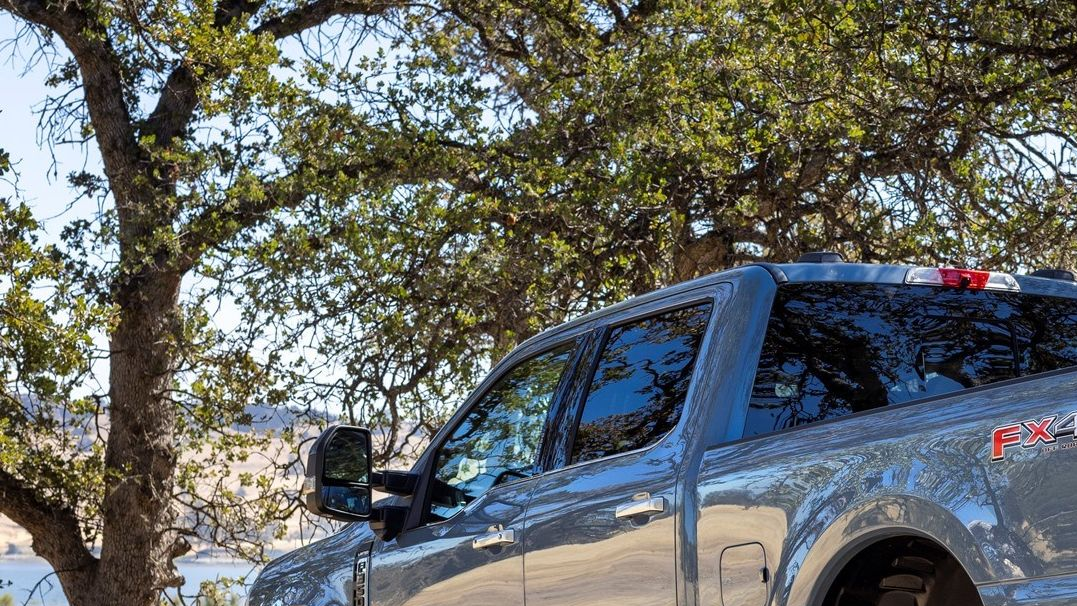Ford Motor is recalling 295,449 diesel-engine trucks due to a faulty fuel pump that may cause a loss of power, increasing the likelihood of a crash, according to the National Highway Traffic Safety Administration (NHTSA). The recall affects a significant number of vehicles, highlighting ongoing concerns about vehicle safety and the potential for mechanical failures that can compromise driver security. This issue underscores the importance of manufacturers ensuring the reliability and safety of critical components, such as fuel systems, in all types of vehicles.
Your Ford vehicle may be part of the major recall
While Ford is one of the most popular and trusted automobile companies in the U.S, that doesn’t mean they are not prone to errors. Drivers of affected vehicles may experience issues such as “extended crank while starting, a Check Engine Light (CEL), noise, and reduced engine power” due to the faulty fuel pump. As of now, Ford has not received any reports of accidents, injuries, or fires related to the issue. The problem arises when biodiesel deposits form on the fuel pump’s drivetrain roller components, potentially causing the high-pressure fuel pump to fail.
The recall affects the following truck models:
- 2020-2022 Ford Super Duty F-250, F-350, F-450, F-550, F-600
- 2021-2022 Ford F-650, F-750
Ford will provide free updates to the powertrain control module software. Affected vehicle owners will receive notification letters by January 13, 2025. Owners can contact Ford customer service at 1-866-436-7332 for further assistance, with the recall number 24S78. For additional information, owners can reach NHTSA’s safety hotline at 1-888-327-4236 or visit www.nhtsa.gov. NHTSA’s recall number is 24V-957.
Fourth vehicle recall by Ford
The recall of the diesel-engine trucks is one of four recalls Ford has issued already this year. They have also issues a recall for the following vehicles due to other safety concerns:
- Over 20,000 compact SUVs, including 2020-2024 Ford Escape and 2021-2024 Lincoln Corsair models, for potential battery failure. Owner notification letters are expected to be mailed on January 20, 2025. Ford’s recall number is 24S79, and NHTSA’s number is 24V-954.
- Nearly 50,000 2024-2025 Lincoln Nautilus vehicles due to faulty power windows that may fail to detect obstructions, increasing the risk of injury. The issue occurs when the window’s automatic reversal system does not respond correctly, and the reversal distance does not meet required standards. Notification letters are expected to be sent by January 13, 2025. Ford’s recall number is 24C43, and NHTSA’s number is 24V-953.
- More than 30,000 2019 Ford Flex, Fiesta, and Lincoln MKT vehicles due to a faulty rear-view camera that intermittently shows a blank, distorted, or inverted image while in reverse, which can reduce the driver’s visibility. Owner notifications will begin on February 2, 2025, with completion by February 7, 2025. Ford’s recall number is 24S75, and NHTSA’s number is 24V-951.
The importance of keeping up to date with news on your vehicle
Staying informed about recalls and updates on your vehicle is crucial for your safety and the safety of others on the road. Recalls, like those recently issued by Ford for issues with battery failures, faulty power windows, and malfunctioning rearview cameras, highlight potential risks that can affect your vehicle’s performance or lead to accidents. By keeping up to date with recall notifications, you ensure that necessary repairs or updates are made, minimizing the risk of accidents or vehicle damage.
In addition to staying informed about recalls, it’s essential to ensure that your car insurance is up to date. Many insurance providers offer coverage for damages resulting from recalled parts or manufacturer defects, but it’s vital to check that your policy reflects any recent changes to your vehicle. Having the right coverage can provide peace of mind, knowing you’re financially protected in case a recall issue leads to an accident or costly repairs. Monitoring both recalls and insurance coverage ensures your car operates safely and remains properly protected.

